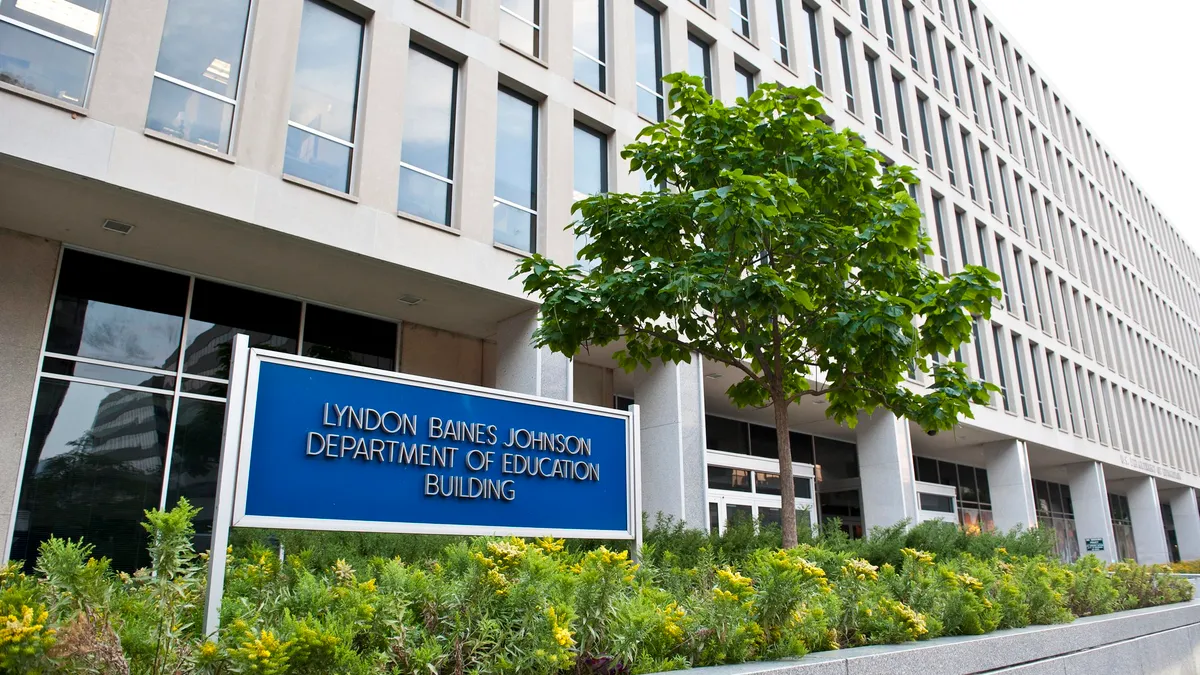Dive Brief:
- The U.S. Department of Education is demanding $23 million from the Center for Excellence in Higher Education, a former college operator whose institutions closed in 2021.
- The money is meant to cover closed-school loan discharges for the organization’s former students. The Education Department notified CEHE how much it owed in a Dec. 8 letter and gave the organization 45 days to either pay or appeal the decision, according to recent court documents.
- The request is the latest development in the legal battle between CEHE and the department. The college operator has accused the Education Department of forcing it to close and sued the agency last year seeking $500 million in damages.
Dive Insight:
CEHE previously owned a collection of colleges across the U.S., including Independence University, California College of San Diego and CollegeAmerica. The organization acquired the colleges in 2012, when they were for-profit institutions, but converted them to nonprofits in 2018.
However, CEHE faced chronic accusations that it was operating the colleges as nonprofits in name only. Allegations of poor student outcomes also dogged the institutions.
Since CEHE shuttered its colleges in 2021, it has blamed the Education Department for its financial problems. Last year, the organization filed a lawsuit in federal court, accusing the agency of breach of contract and illegal taking of funds.
Part of the lawsuit focuses on federal financial aid. In 2021, the Education Department placed CEHE’s colleges under heightened cash monitoring 2 status, which requires colleges to front the money for students’ federal financial aid payments.
CEHE distributed about $43 million to students while under this status, but says the Education Department improperly denied its reimbursement requests. In its lawsuit, CEHE said that was one of several moves intended to force the organization’s sudden closure and “pave the way to impose massive closed-school discharge liabilities in the future.”
CEHE also took issue with how the Education Department handled another pot of money — escrow deposits it made to keep accessing federal financial aid.
The Education Department initially agreed to return the funds in late 2016, according to CEHE’s lawsuit. But the agency told the operator in 2017 that it was keeping the money because of issues with CEHE’s financial audit.
The Education Department has maintained that it lawfully kept the funds.
In its December letter to CEHE, the Education Department said its interest in this deposit remains, as the organization’s “liabilities have not yet been finally determined.”
The Education Department notified CEHE in July that it would determine the organization’s liability for closed-school discharges. A month later, CEHE responded in a letter to the agency, echoing the lawsuit’s allegations.
“The Department — not CEHE — is responsible for the closed school liabilities,” it said. “Because the Department illegally cut off Title IV funding, in effect it forced CEHE to close.”
CEHE also took issue with the Education Department’s recent decision to forgive $130 million in student loans for borrowers who attended CollegeAmerica’s Colorado campuses. CEHE in part argued that the agency didn’t afford the organization due process when wiping away those loans.
The Education Department did not address that issue in its December letter, arguing that the borrower defense decision had no bearing on the closed-school loan discharges.
The agency also argued that it didn’t force CEHE to close. It rejected the organization’s Title IV federal financial aid reimbursement request because of errors in the organization’s student file documentation, according to the letter.
“As with all rejected claims, CEHE was provided with the opportunity to resubmit the claim after fixing the identified errors,” the Education Department said. “There is nothing in the rejection letter which directs, or suggests, CEHE close its doors and cease providing educational programs. That decision rested solely with CEHE.”
Eric Juhlin, CEHE’s acting chief executive, did not immediately respond to a Monday email asking whether the organization planned to appeal the Education Department’s request.














